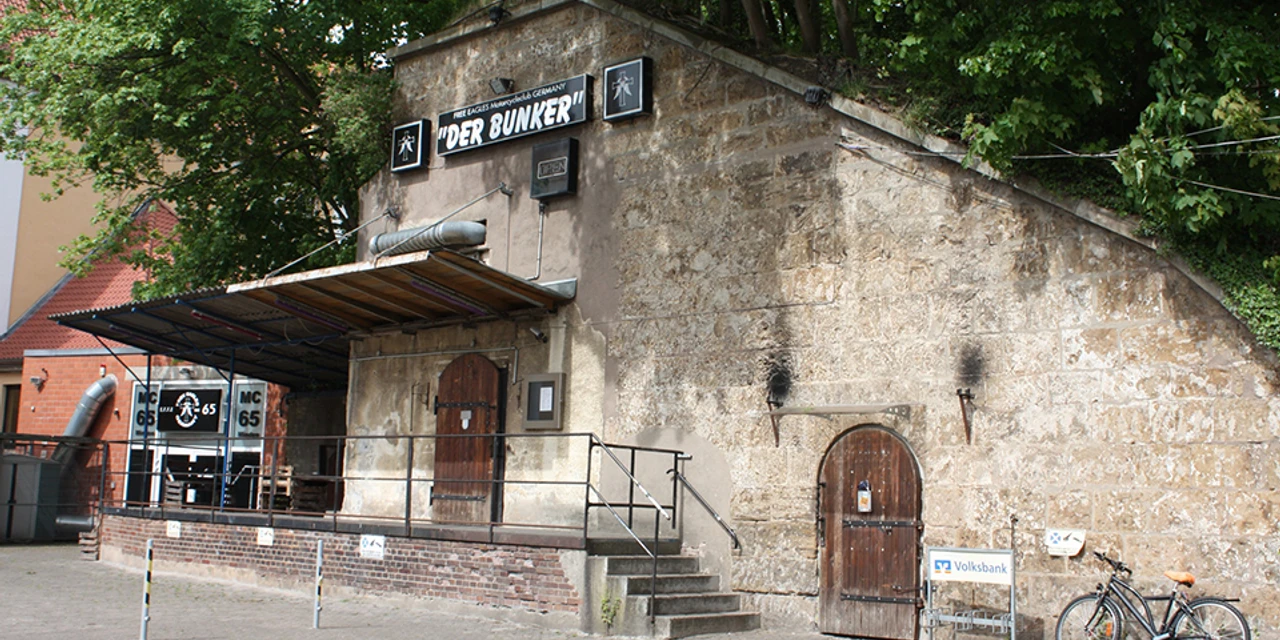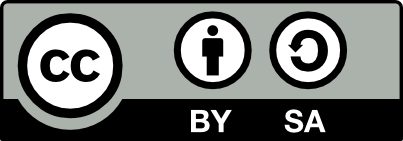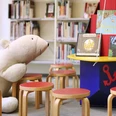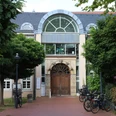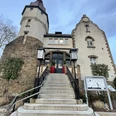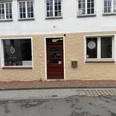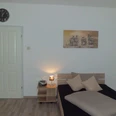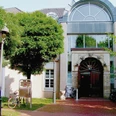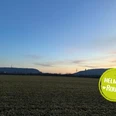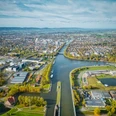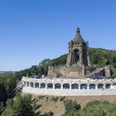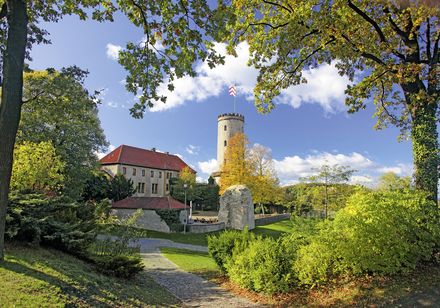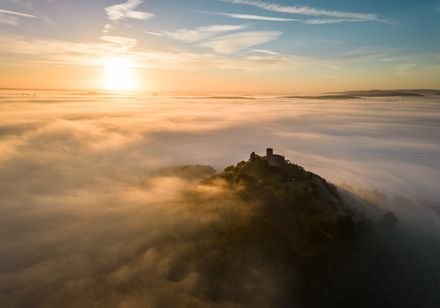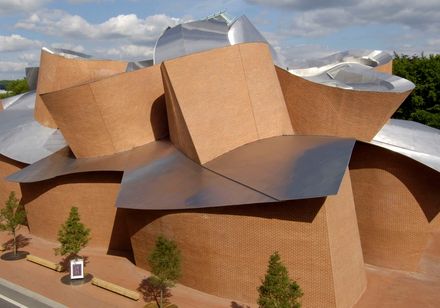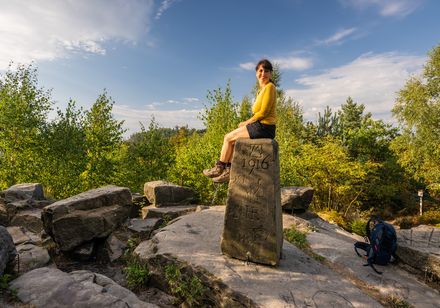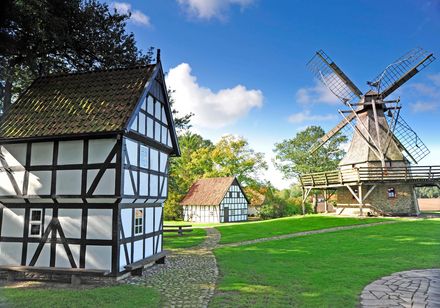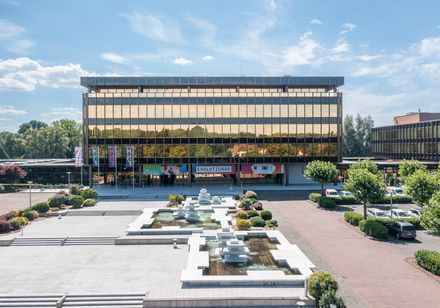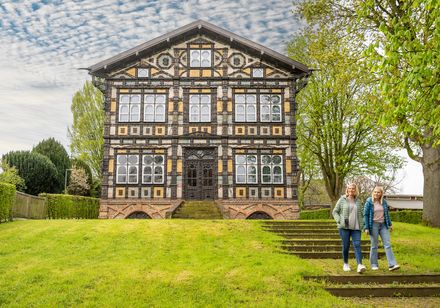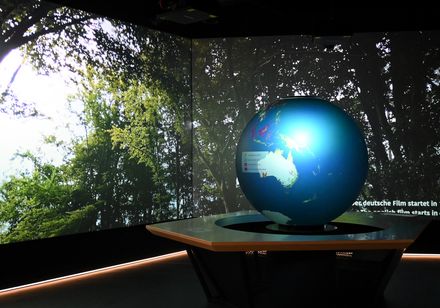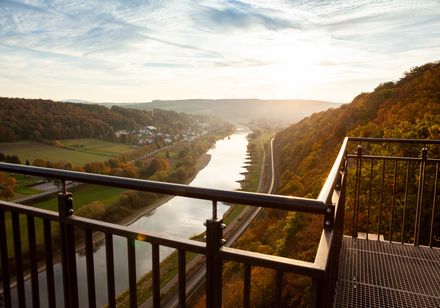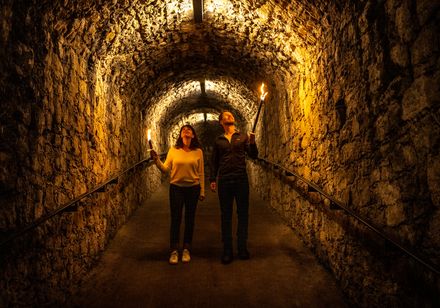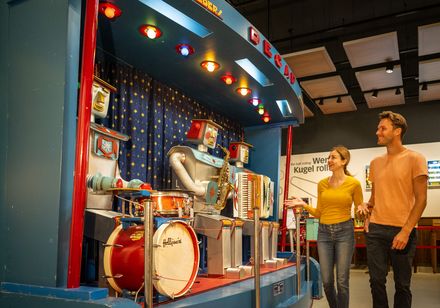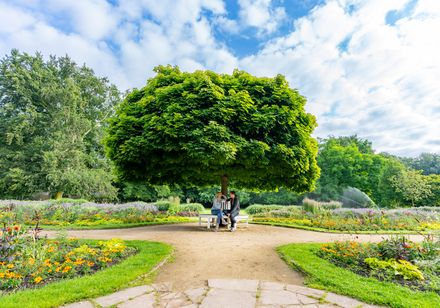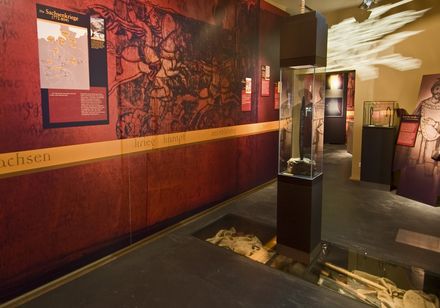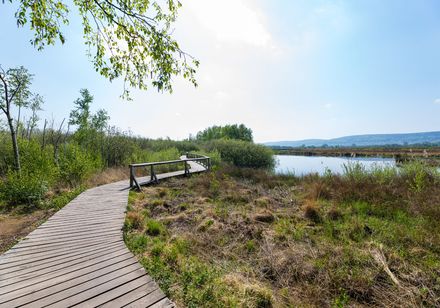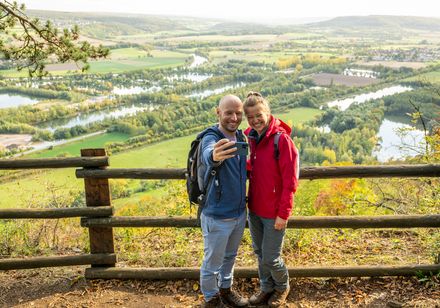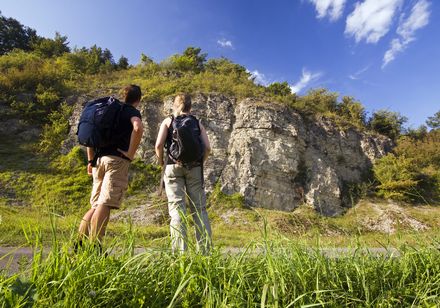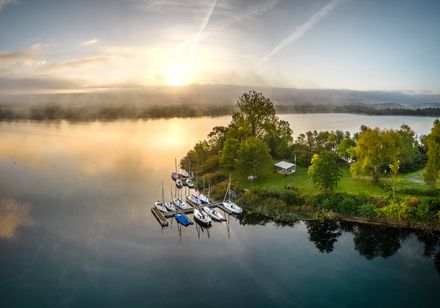History:
War powder magazine no. 1, built in 1819, is located in the courtyard of high bastion VI - safely nestled between the Schwichow fortified bastion and the Königstor ravelin. In the event of a siege, it had to hold the powder supplies from the peace powder magazine no. 1, which was built outside the fortress for security reasons. The highly explosive powder stores were always kept outside the densely populated city fortresses, as was the case in Minden. Each time the fortifications were reinforced, the powder supplies were retrieved from the external depots to the casemated war powder magazines behind the main rampart. The supply in powder magazine no. 1 was up to 1,000 hundredweights of gunpowder, which was stored in wooden barrels.The core of the magazine building consists of a solid brick, elongated barrel vault, which lies under a massive gabled roof and is supported on each side by four buttresses. At the front end is a small entrance sluice with angled access. To protect against the greater penetrating power of projectiles from rifled guns, which were developed and introduced in the armies around the middle of the century, the fortress construction authorities surrounded the older magazine building with a second wall shell and a massive earth embankment in 1869-71. The air jacket between the walls served to keep the building and the powder stores dry.
The powder kegs were stored in two storey levels on a wooden structure. Powder magazines were usually constructed away from the main rampart. This was to prevent the rampart system from breaking open in the event of an explosion.
The magazine building is now the only fully preserved part of the former ramparts; tall trees have now grown on the earth fill.
Good to know
Openings
See dates on the homepage
Price info
It is a LIVE club that opens its doors on Saturday.
General information
Parking Available
Bus stop available
Eligibility
Bad Weather Offer
Suitable for any weather
for Groups
for individual guests
Directions & Parking facilities
The bunker is located on Königswall and is easy to reach by car. The alternative to parking is diagonally opposite in the "Weingarten" parking lot.
Contact person
License (master data)
Minden Marketing GmbH
Nearby
